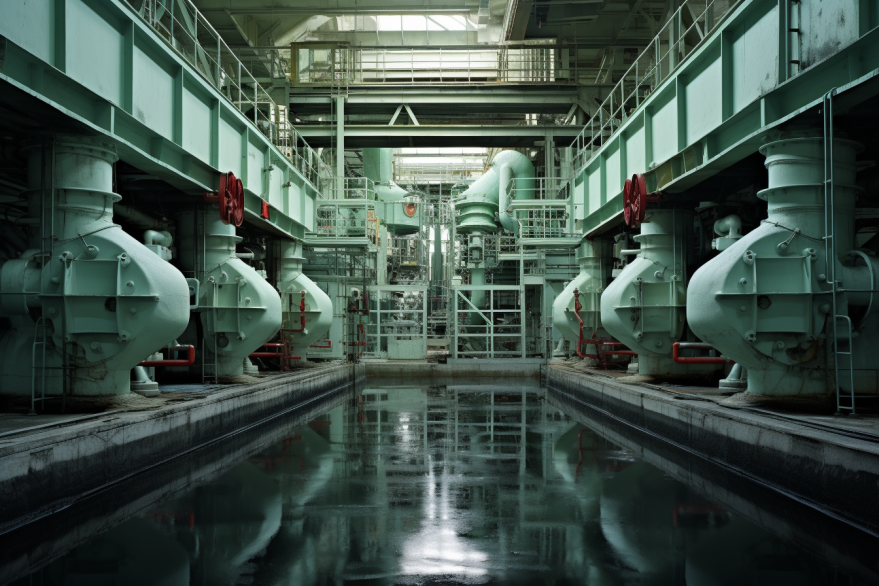Nuclear whistleblowers are individuals who report safety violations or other misconduct related to nuclear facilities or activities. These whistleblowers can come from a variety of backgrounds, including employees of nuclear power plants, contractors, and government officials.
Who are some types of nuclear safety whistleblowers?
employee of a nuclear power plant
One common type of nuclear whistleblower is an employee of a nuclear power plant or other nuclear facility who reports safety violations or other misconduct. These individuals may witness unsafe practices, equipment failures, or other issues that could potentially lead to a nuclear accident or other serious consequences.
CONTRACTORS OR CONSULTANTS
Another type of nuclear whistleblower is a contractor or consultant who works with nuclear facilities and reports safety violations or other misconduct. These individuals may have specialized knowledge or expertise that allows them to identify potential safety hazards or other issues that others may not be aware of.
GOVERNMENT OFFICIALS
Government officials can also be nuclear whistleblowers if they report safety violations or other misconduct related to nuclear activities. These individuals may work for agencies responsible for regulating nuclear facilities or overseeing nuclear activities, and may report issues related to safety, security, or other concerns.
GENERAL PUBLIC
Members of the public can also be nuclear whistleblowers if they report safety violations or other misconduct related to nuclear activities. These individuals may live near nuclear facilities or be otherwise impacted by nuclear activities, and may report issues related to safety, environmental concerns, or other issues.
Who are some famous nuclear safety whistleblowers?
Dale G. Bridenbaugh
Dale G. Bridenbaugh, an engineer at General Electric (GE), made headlines in 1976 when he, along with two colleagues, collectively known as the ‘GE Three’, resigned from their positions to publicly express their concerns about the safety of GE’s Mark 1 nuclear reactor design. Bridenbaugh believed that the design could not withstand high-pressure conditions that could occur during a nuclear accident. He has since become an ardent advocate for nuclear safety and has testified before the U.S. Congress about the potential hazards of nuclear power.
George Galatis
George Galatis was a senior engineer at Northeast Utilities in the 1990s who blew the whistle on safety issues at the Millstone Nuclear Power Station in Connecticut. Galatis revealed that the plant frequently violated Nuclear Regulatory Commission (NRC) rules regarding the disposal of spent fuel rods. The case led to the temporary shutdown of the plant and significant fines for Northeast Utilities. Galatis’ actions spurred a federal investigation into the NRC’s enforcement of nuclear safety regulations.
Kaoru Kobayashi
Kaoru Kobayashi served as the director of Japan’s Nuclear and Industrial Safety Agency (NISA). In 2006, he revealed that the Tokyo Electric Power Company (TEPCO) had falsified inspection reports and concealed critical information about the safety of its nuclear plants for decades. In the aftermath of the scandal, NISA became more stringent in its oversight of nuclear safety in Japan.
WHICH LAWS PROTECT nuclear safety WHISTLEBLOWERS?
United States
The Energy Reorganization Act (ERA) of 1974
This law provides protections to employees of nuclear power plants and contractors who report safety concerns. It prohibits retaliation against whistleblowers and allows them to file complaints with the U.S. Department of Labor.
The Whistleblower Protection Act (WPA)
While not specific to nuclear safety, the WPA provides protection to federal employees who disclose information about government wrongdoing, including safety violations in agencies overseeing nuclear facilities.
European Union
The Euratom Treaty
This treaty establishes the framework for the safety of nuclear installations within the European Union. It emphasizes the importance of information exchange, safety assessments, and transparency, which indirectly supports whistleblowers who raise safety concerns.
Canada
The Nuclear Safety and Control Act (NSCA)
This law provides protections for employees of nuclear facilities who disclose information about safety concerns. It prohibits reprisals against employees who report such concerns and establishes a process for resolving disputes.
United Kingdom
Public Interest Disclosure Act 1998 (PIDA)
This legislation, also known as the “Whistleblowing Act,” provides protections to whistleblowers across various sectors, including nuclear. It outlines the conditions under which whistleblowers are protected from retaliation.
International Atomic Energy Agency (IAEA)
The IAEA has encouraged member states to develop mechanisms for reporting and addressing nuclear safety concerns, which can indirectly support whistleblowers by promoting a culture of safety and transparency.
PRACTICE AREAS
- False Claims Act
- Contractors and Sub-Contractors Fraud under the Davis-Bacon Act
- Customs Fraud
- Education Fraud Under the False Claims Act
- Finance Industry Whistleblowers
- Empowering Environmental Whistleblowers for a Greener Future
- Government-backed Mortgage Fraud
- Safeguard Your Business from Procurement Fraud Risks
- Whistleblowing in Healthcare under the False Claims Act
- Nuclear Safety Whistleblowers
- Pharmaceutical Whistleblowers
- Small Business Contract Fraud Under The False Claims Act
- Transportation Whistleblowers
- SEC Whistleblower Program
- CFTC Whistleblower Program
- FIRREA Whistleblowers
- IRS Whistleblower Program
- Auto Whistleblower Program
- Class Actions
- Executive Compensation and Employment Law
Common TYPES OF nuclear safety whistleblowers
- Employees
- Contractors
- Consultants
- Government Officials
- General Public


